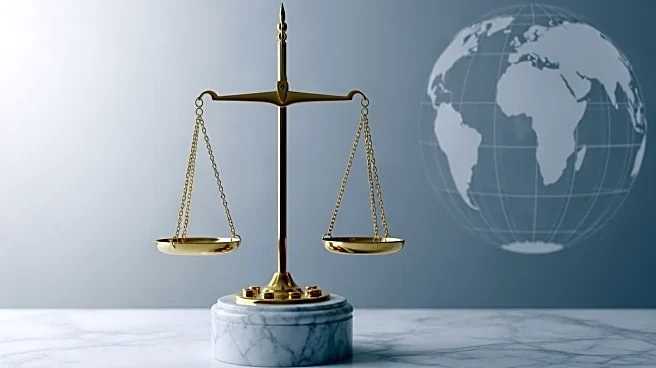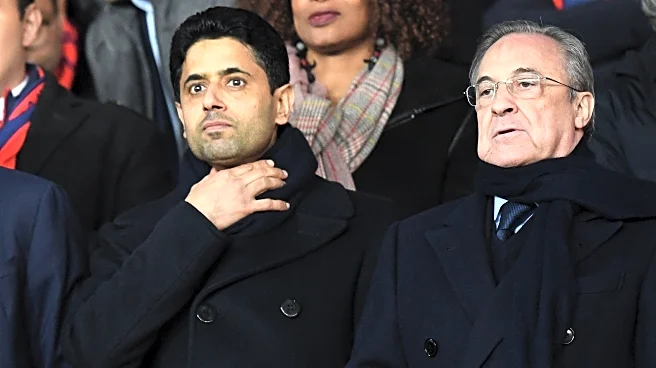What's Happening?
Pope Leo XIV has urged world leaders to take responsibility and address the pressing issues of global hunger and conflict. Speaking at the World Food Day ceremony in Rome, which also marked the 80th anniversary
of the U.N. Food and Agriculture Organization, Pope Leo emphasized the need for the international community to focus on the millions facing hunger, wars, and misery worldwide. He highlighted conflicts in Ukraine, Gaza, Haiti, Afghanistan, Mali, the Central African Republic, Yemen, and South Sudan, citing U.N. data that approximately 673 million people do not have enough to eat daily. The Pope condemned the use of hunger as a weapon of war and called for a reevaluation of global priorities and lifestyles. His appeal comes at a time when U.N. food aid agencies are experiencing severe funding cuts from major donors, including the U.S. under the Trump administration, which threatens to push millions into emergency levels of hunger.
Why It's Important?
The Pope's call to action underscores the critical situation faced by global food aid agencies, which are struggling with reduced funding from key donors. The World Food Program, a major U.N. agency, has reported unprecedented challenges in securing funds, which could lead to significant disruptions in aid delivery to countries like Afghanistan, Congo, Haiti, Somalia, South Sudan, and Sudan. These funding cuts risk exacerbating hunger crises in regions already plagued by conflict and instability. The Pope's message serves as a moral and ethical reminder of the collective responsibility to address these humanitarian issues, urging leaders to prioritize aid and support for vulnerable populations. The potential impact of these funding challenges could lead to increased suffering and instability in affected regions, highlighting the need for immediate and coordinated international action.
What's Next?
The Pope's appeal may prompt discussions among international leaders and organizations about increasing support and funding for food aid programs. As the U.N. agencies face financial constraints, there may be efforts to mobilize alternative sources of funding or to encourage donor countries to reconsider their aid contributions. The situation could lead to diplomatic engagements aimed at addressing the root causes of hunger and conflict, potentially involving negotiations for peace and stability in affected regions. Additionally, there may be increased advocacy and awareness campaigns to highlight the urgency of the global hunger crisis and to galvanize public and private sector support.
Beyond the Headlines
The ethical implications of using hunger as a weapon of war, as condemned by Pope Leo, highlight a deeper moral crisis in global conflict zones. This practice not only violates humanitarian principles but also exacerbates suffering and undermines efforts for peace and reconciliation. The Pope's call for a reevaluation of lifestyles and priorities challenges individuals and societies to consider their roles in perpetuating or alleviating global inequalities. Long-term shifts in policy and public consciousness may be necessary to address these systemic issues and to foster a more equitable and compassionate global community.











